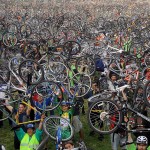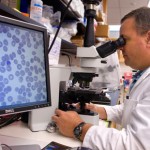We can’t ignore the little things that keep us alive.
by David Suzuki
Scientists believe life appeared on Earth almost four-billion years ago, about half a billion years after our relatively young planet formed. It would be fascinating to see how life arose and managed to hang on.
If scientists were to invent time travel to take us back through Earth's history, we'd see little life for most of the four-billion years. Plenty was happening but at a microscopic level as organisms worked out all the intricacies of survival: finding food and energy, evading predators, fighting off disease (even bacteria get virus infections), reproducing and eliminating waste.


